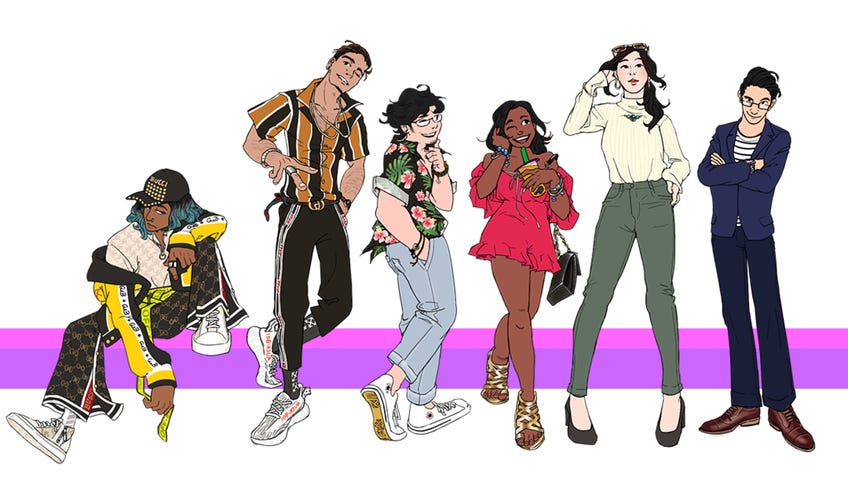Our Shores designers want their Kickstarter to be the first wave of Southeast Asian RPGs going mainstream
Together, they hope to overcome national restrictions and find a deserving audience.
The creative force behind the #RPGSEA hashtag has been swelling for years. Tabletop designers across Southeast Asia use it as a way to network with peers, share ideas, collaborate on experimental projects and decry their inability to catch the attention of a wider audience. Their games run the genre gamut and often provide a refreshing non-Eurocentric look at RPG play.
So, why haven’t they enjoyed more success? Those reasons are complicated and, until recently, largely outside of their control. The Our Shores Kickstarter, a collection of three different tabletop games from Southeast Asian creators, wants to be the breaking crest on a tide that reaches across the world.
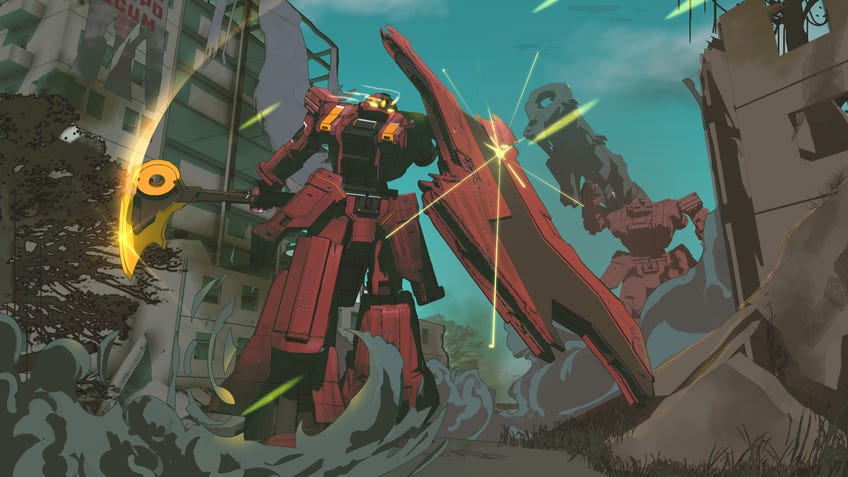
Designers in the Philippines, Singapore and Malaysia created #RPGSEA in 2019 to find each other in a sea of Twitter posts and Itch.io listings. The beauty of a hashtag, according to Pam Punzalan, was that it allowed individuals to tag their content without restricting it to a single platform. Punzalan and fellow Filipino designer, Mahar Mangahas, attended San Francisco’s Big Bad Con 2019 to deliver a panel on #RPGSEA and showcase games from their region to a wider audience. The popularity took off afterwards.
Every culture, I believe, has something important to share to the world and this is just one step in the right direction for that to happen for us.
Game jams, community outreach and cooperative platforming sustained the growing coalition and introduced many new faces. Punzalan and their partner, Sinta Posadas, convinced mutual friend Joaquin Kyle Saavedra to finally start publishing games. Eventual Our Shores partner Samuel Mui met them during this period.
But the influx of talent and ideas couldn’t overcome the simple fact that most Southeast Asian countries, save for Singapore, don’t support Kickstarter projects. The crowdfunding website has spent the last decade entrenching itself as the most successful avenue for not just funding projects, but introducing them to an international market.
According to Punzalan, creators like them face several insurmountable obstacles. “Issues of access such as difficulty acquiring Visas for travel to countries where the tabletop industry is big, down to currency exchanges making professional services like editing very expensive - most of us can only go as far as publishing digital copies of our stuff on platforms like DriveThruRPG or Itch. Others stick purely to local distribution.”
“The only way we could've ever gotten involved with Kickstarter is if we went through someone who lived in a country which did have access,” said Mui. The group knew early on the success of Our Shores hinged on finding a sponsor. Luckily, Nem of independent design outfit Sandy Pug Games was all too happy. “[They] have been really, really supportive about the project and set up the project for us. We really couldn't get anywhere without their help,” Saavedra said.
The sponsorship opens more doors beyond simply funding the labour necessary to create RPGs. Kickstarter’s format allows projects to add stretch goals post-launch, incentivising players to invest but also giving Our Shores’ creators the opportunity to bring more artists, designers and Southeast Asian voices to the project.
“It means more opportunities, more avenues for expansion, and more recognition - we'll be able to make our mark on the world and fight back against the assumption that we're just chaotic third-world countries with little value to contribute in our field,” Mui said. “Every culture, I believe, has something important to share to the world and this is just one step in the right direction for that to happen for us.”
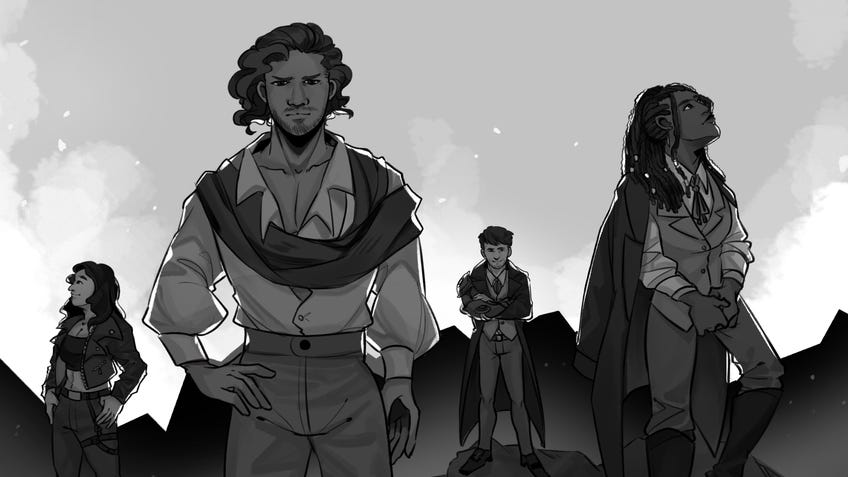
If successful, Our Shores will signal a break from what many recognise as #RPGSEA design - smaller projects, contributing credits and sporadic jams. Initially, the designers plan to fund three larger projects, one each from Mui, Saavedra and the team of Posadas and Punzalan. Beyond that, Our Shores wants to release a zine composed of full-length titles from other designers. They described it as a paradigm shift, a new era for game design across Southeast Asia beginning with their Kickstarter campaign.
Most of us can only go as far as publishing digital copies of our stuff on platforms like DriveThruRPG or Itch. Others stick purely to local distribution.
Talking about their inspirations and design philosophy, it’s clear they pay attention to the tabletop space - even if that space largely ignores them. Posadas and Punzalan’s Navathem's End “kitbashes” the Forged in the Dark (Blades in the Dark, Band of Blades) and Powered by the Apocalypse (Masks, The Sprawl) engines, along with some OSR seasoning for good measure. The result is a system “designed for long campaigns that can span for a year and beyond” and dedicated downtime phases that offer rewarding opportunities for character- and world-focused play.
The end of the eponymous Navathem is as apocalyptic as it is mesmerising, and the player-controlled Agents of a Tower call upon their aspects of Blood, Will and Crown to hold the line against impending oblivion.
“Navathem's End, in particular, is a game where I want to emphasise the concept of ‘hopepunk’,” Posadas said. “Hopepunk to me is a genre that allows players to know and acknowledge that the world is in a dire place and that the end of it is near, but that there is always something to fight for.”
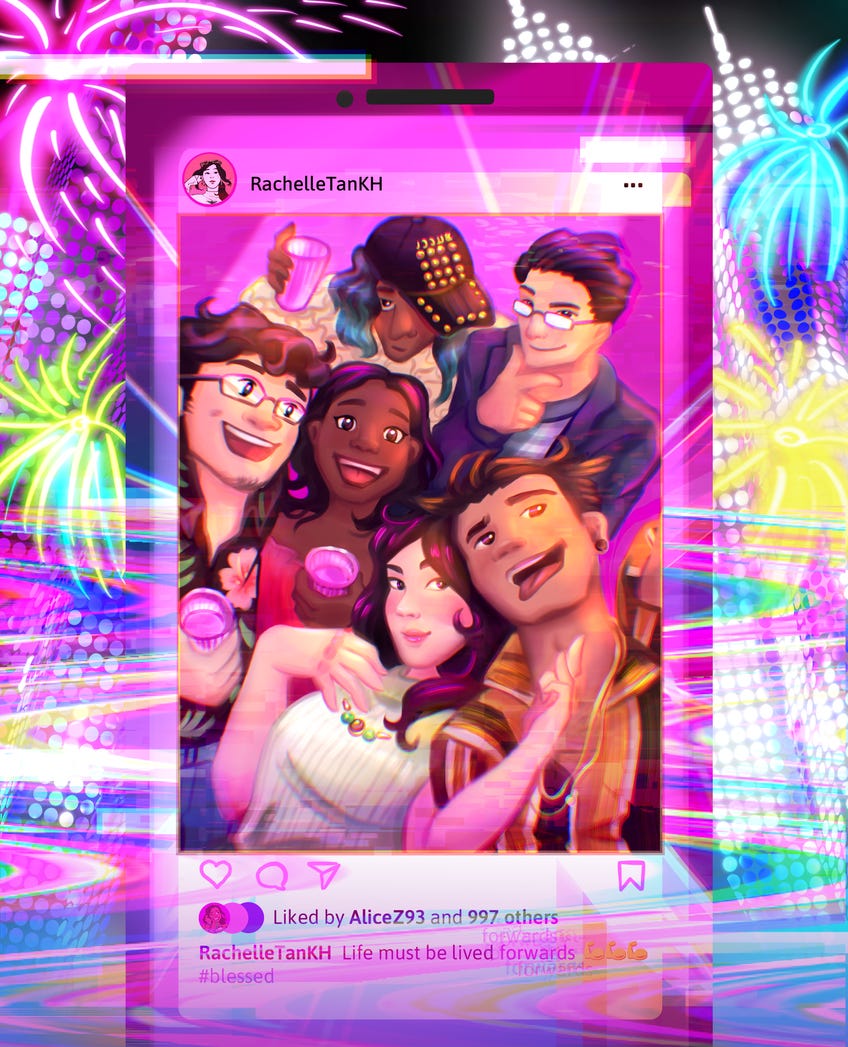
While not exactly a kitbash, Saavedra’s Maharlika springs from a deep love for both Dungeons & Dragons 4E and mech RPG Lancer, run through with Filipino mythology. The Maharlika pilot “technomystical” meka in defense of the material and spiritual interest of a Datu, owners of the world’s megacorporations. Whether players’ interests align with the all-powerful CEOs or skew more mercenary is a choice with rippling consequences because freedom has many definitions in the Arkipelago galaxy.
Saavedra said writing Maharlika, with illustration by artist Misael Manning, became a cathartic experience that drew heavily on their own views of life as a worker struggling to eke one more day out of an exploitative system.
I think there's a very predominant and unhealthy expectation for an ‘Asian’ piece of work to revolve around cultural aesthetics or our histories.
“The setting and feudal nature of the mechanics is sort of a satire about the current Philippine political landscape, its excessive neoliberal bent, its disregard for nature and people in the chase for capital, and the fact that we all have to play along and be whisked away by the capitalist tendencies of the government,” they said.
Speaking of satire, Mui’s Capitalites leans heavily into its goal of holding up a mirror to Southeast Asian representation in media, such as Crazy Rich Asians and Singapore Social, which they feel missed the mark of representing reality by a huge margin. They saw an opportunity in the cracks of those premises to tell emotionally resonant stories.
Capitalites is a GM-less, rules-light system where players take on the role of Asian young adults trying to “find out who they are and get their shit together” against the backdrop of a metropolitan city. “As I researched the lives of the people in the show, I realised that they were in fact very real people with very real feelings and lives,” Mui said. “I decided to deliberately draw directly from my own life and the lives of my peers [...] identifying the variety of differences and commonalities we fell under.”
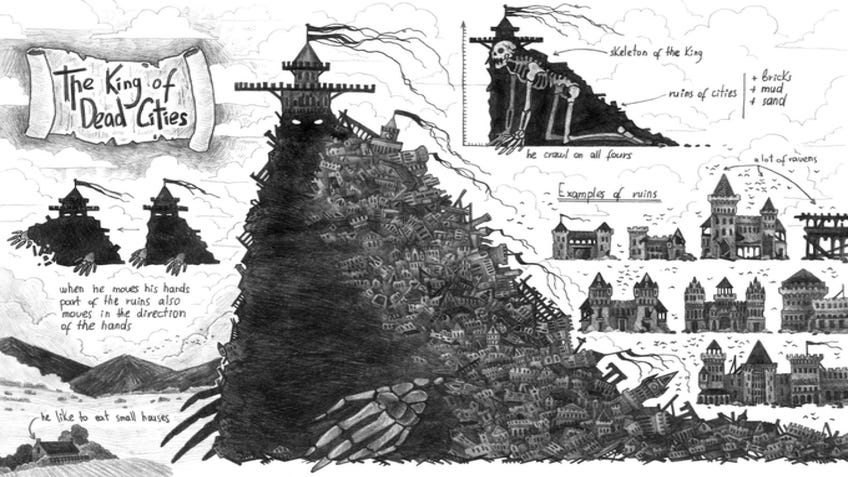
In the course of reporting this piece, I asked each of the designers about the difficulty of translating the experience of being Southeast Asian to the tabletop, especially when they knew players might struggle to approach the games’ influences thoughtfully. The answers revealed a point of frustration and a blind spot in my own understanding: the Southeast Asian experience is not a resource to be traded or alchemised for others’ enjoyment.
Punzalan explained all of theirs and Posadas’ games reject the notion that even the Southeast Asian experience can be generalised. The world of Navathem exists for players to discover and interpret in their own way.
“Our identities as Filipinos and the experiences we carry from our lived narratives - queer in a hyper-Catholic context that believes we should be dead, femme or femme-seeming in a cishet man's world, based in one of the most congested metropolises in the world where violence is a way of life, and hailing from a four-times-colonised archipelago now buckling under a new dictatorship - shine through in Navathem,” they said.
Our identities as Filipinos and the experiences we carry from our lived narratives shine through in Navathem.
Mui spoke of the pressure to hit certain cultural touchstones simply because the game was created by someone from one of Asia’s dozens of countries. “I think there's a very predominant and unhealthy expectation for an ‘Asian’ piece of work to revolve around cultural aesthetics or our histories,” they said.
“If I'm going to make a ‘Malaysian Chinese board game’ it's going to involve some degree of cultural exchange where I share a cooking method or a family tradition in the form of a game. While that's very valid and cool, it is not something about my experience that I feel like sharing because it does not accurately reflect what my life is actually like.”
Mui’s life, and the life of many of their friends, is “defined by stuff like social media, cafe hopping, investment banking, dating apps, digital startups and all that real life bullshit”. They want to be able to create and share experiences that explore their version of “normal” because it’s just as valid and worth exploring as anyone else’s - and it might lead some to confront uncomfortable truths about their own definitions.
All three games will be offered as part of the Our Shores Kickstarter and support the designers’ effort to expand the project into the larger zine. The campaign will run through February 19th and a digital copy can be purchased for $35 (£26).
